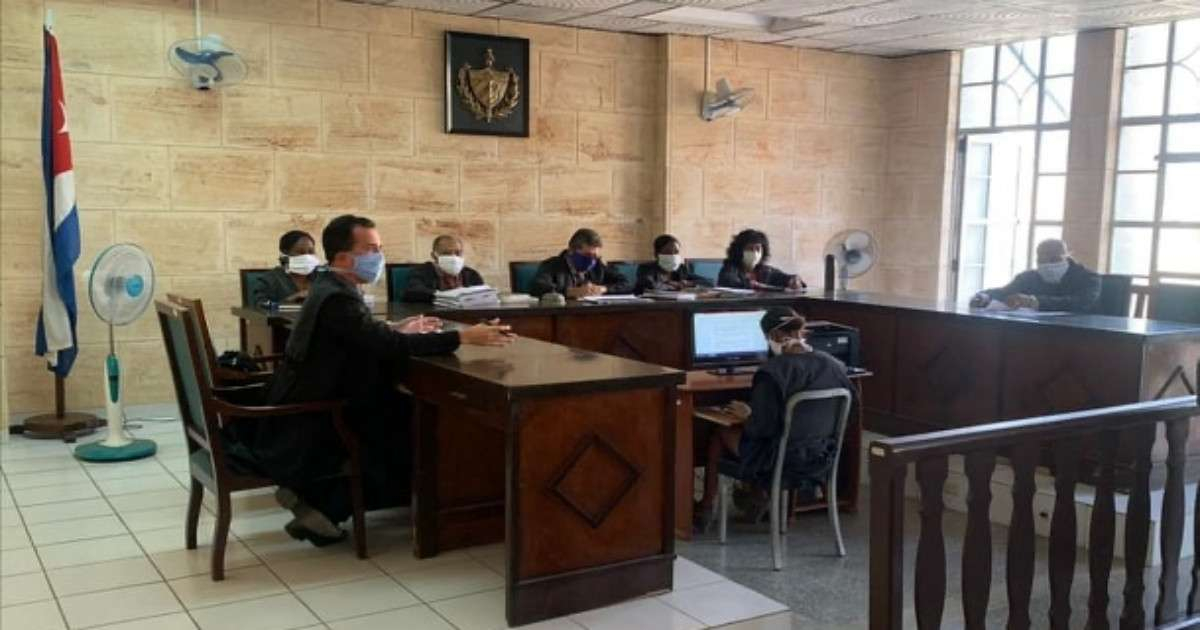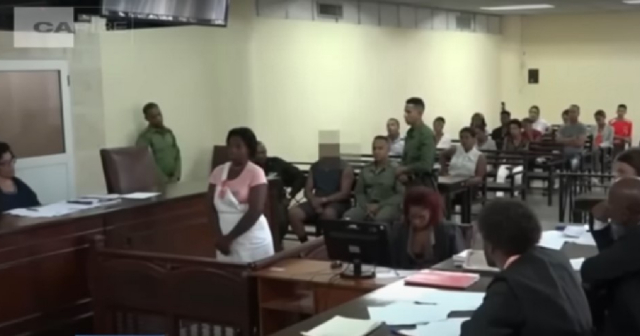
Theofficial Gazetteof Cuba published the currentPenal Code of the island that will come into force within 90 days, after having been approved last May by theNational Assembly of People's Power.
“The Penal Code is already published in the Gazette and comes into force within ninety days. Our organization has warned about the serious violations that this Code includes,” the human rights defense organization, Cubalex, pointed out this Thursday on Twitter.
It also disseminates an infographic with eleven alarm points of Law 151/2022 “Penal Code”, published during this day in edition 93 of theOfficial Gazette of Cuba.
Cubalex considers that this Law criminalizes ambiguous, broad and discretionary criminal conduct; In addition, in this case some 32 crimes threaten freedom of expression.
Likewise, this Penal Code affects the freedom of assembly, association and peaceful demonstration, and it places the use of cyberspace as an aggravating factor in criminal liability.
The organization also includes among the alarms that this Law maintains the death penalty, the use of therapeutic security measures and that criminal responsibility is maintained from the age of 16.
The Penal Code also does not recognize feminicide as a special crime and there is a criminalization of the illegal dissemination of satellite, television, radio or similar signals with a maximum penalty of up to eight years in prison.
The organization also warns about the permissibility of electronic surveillance, the monopoly of criminal action in electoral conduct that must be processed through non-criminal means, and the greater criminalization of independent journalism.
After the approval last May of the current Penal Code by the Cuban legislative body, the Inter-American Press Association (IAPA)He described it as a retrograde law.
He also said thatCuban criminal legislation goes back the country to "obscurantist times, when officials distanced themselves from the people through abuses and privileges.
He also regretted that freedoms of the press and expression, as well as the right to free association and assembly, are further criminalized.
"The Code has elements similar to military equipment, which the regime can use to attack and undermine the information and independent opinions of dissidents. Citizens will not even be able to freely use social networks or call their friends to protest," he said. the organization that defends and promotes freedom of the press and expression in the Americas.
Likewise, he pointed out that this Penal Code maintains the death penalty by firing squad in 24 crimes and formalizes sanctions of life imprisonment, in addition to stipulating up to three years in prison for anyone who insults high-ranking public officials.
The non-profit organization warned that with this law, up to 10 years in prison could be imposed on anyone who "supports, encourages, finances, provides, receives or has in their possession funds, material or financial resources" from non-governmental organizations or international institutions. used to "fund activities against the State and its constitutional order."
The president of the IAPA, Jorge Canahuati, regretted in the statement that the "Cuban authorities travel to the past, against the grain of the developed world, towards obscurantist times, when officials distanced themselves from the people through abuses and privileges."
Also theInter-American Commission on Human Rights (IACHR) expressed its concern after its approval last May by Cuban legislators.
“Given the approval of the new Penal Code on May 15, the IACHR and the Office of the Special Rapporteur of the IACHR express concern about criminal offenses that could be used to criminalize the legitimate exercise of the freedoms of expression, assembly and association,” the institution said from his official Twitter account.
“The IACHR and the RELE warn that the new Penal Code maintains broad and imprecise language to classify crimes such as 'sedition' and 'against the constitutional order', andincreases penalties related to them, such as life imprisonment and death. Also worrying is the inclusion of a criminal offense that would criminalize the financing of organizations and journalists critical of the 'State and its constitutional order,'" this international organization added in its post.
“As Rapporteur of the IACHR for Cuba, I express my concern about the new Penal Code, given the multiple complaints that through ambiguous classifications seek to silence and persecute those who demand freedom and democracy on the Island,” Guatemalan lawyer Stuardo also noted on that occasion. Ralón.
What do you think?
COMMENTFiled in:






